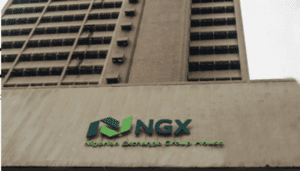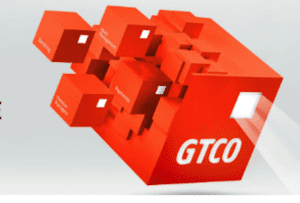Access Bank, UBA, pay highest salary in H1 2022
Thirteen listed Nigerian banks paid the sum of N291 billion as wages and salaries to their staff in the first half of the year, an 11.8 per cent increase, compared to the N260.36 billion recorded in the corresponding period of last year.
This is as aggregate personnel expenses, which includes other benefits to the employees such as pension contributory scheme, defined benefit obligation amongst others, increased by 15.3 per cent from N276.9 billion recorded in H1 2021 to N319.29 billion in the review period.
Access Bank recorded the highest staff expenses between January and June 2022, followed by First Bank, and UBA.
Staff compensation, integral part of human resource management have been linked to organizational performance in recent times as it helps in motivating the employees to give their best and in effect improve the firm’s effectiveness.
Here is a compilation of top 10 banks listed on the Nigerian Exchange (NGX) based on the total wages and salaries paid to employees in the first half of the year, leveraging on their staff strength as of the review period (if available) or as of the end of 2021, in order to obtain the average salary per staff in H1 2022.
Access Bank spent a total of N58.27 billion as personnel expenses between January and June 2022, an increase of 33.9 per cent at compared to N43.5 billion recorded in the corresponding period of 2021. Out of this amount, N50.91 billion was used as payment for wages and salaries to its employees.
Its staff compensation increased significantly, despite a decline in its staff strength. Notably, its total staff strength stood at 6,040 as of June 2022, from 6,497 employees recorded as of June 2021. Meanwhile, on a per capita basis, its average salary per staff for the six-month period stood at 8.43 million, the highest compared to the other twelve banks. A breakdown of the bank’s personnel expenses shows that N5.01 billion was spent as increase in defined benefit obligation. Contributions to defined contributions plans for the review period stood at N1.57 billion, while restricted share performance plan stood at N785 million.
FBN Holdings, the parent company of First Bank of Nigeria spent a sum of N55.3 billion as personnel expenses in the first half of 2022, compared to N51.2 billion spent in the corresponding period of 2021.
Although, the bank did not release the breakdown of its personnel expenses because the result for the first half of the year was an unaudited result. However, personnel cost increased by 7.9 per cent year-on-year. According to the bank’s statement, the firm’s staff strength stood at 8,179 as of December 2021, translating to an average of N6.76 million expenses per staff in the six-month period.
A total of N52.29 billion was spent by UBA as personnel expenses in the first half of the year, representing a 22.7 per cent increase when compared to the N42.62 billion recorded in the same period of the previous year.
Also, UBA paid a sum of N48.75 billion as wages and salaries in the review period, 20.1 per cent increase when compared to N40.57 billion recorded in the corresponding period of 2021. The breakdown of the report showed that N2.2 billion was spent on defined contribution plans. Meanwhile, N1.34 billion was spent on termination benefits. On a per capital basis, UBA’s 10,275 employees earned an average of N4.74 million in salaries between January and June 2022.
Zenith Bank spent N39.74 billion on personnel expenses in the first half of 2022, representing a 5.1% increase from N37.58 billion recorded in the same period of 2021. Salary and wages expenses also increased by 5.1 per cent to N36.7 billion in the period under review.
The tier-one bank increased its staff strength from 7,847 employees recorded as of June 2021 to 8,152 by the end of June 2022. Using the staff strength as of the review period and salary expenses, average salary of staff members in the six-month period stood at N4.5 million. Meanwhile, N2.07 billion was spent by Zenith Bank on staff pension contributions, while N964 million was assigned to other staff costs.
Stanbic IBTC Holdings, the parent company of Stanbic IBTC Bank sent a total of N24.68 billion as personnel cost between January and June 2022. Stanbic IBTC increased its staff expenses by 22.2 per cent year-on-year from N20.2 billion recorded in H1 2021.
Also, its wages and salaries increased by 20.7 per cent to N23.79 billion, while its staff strength increased to 2,911 employees from 2,895 recorded in the previous year. Meanwhile, salary and wages per staff stood at N2.91 million in the six months. Similarly, the holding company spent a sum of N888 million on equity-linked transactions.




